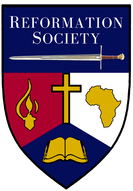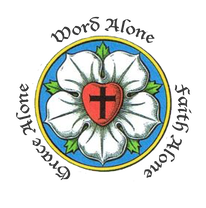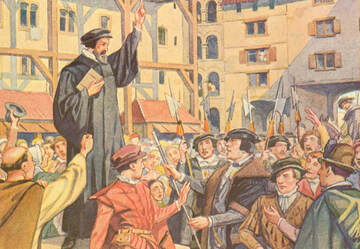
A Man of Action
Guillaume Farel (1489-1565) was a dynamic man of action who gave his whole life to spreading the Gospel of Christ. Farel was one of the most important leaders of the French Reformation from its beginnings. By Grace Alone While studying under Professor Jacques Lefevre at Sorbonne University in Paris, Farel came to faith in Christ. Professor Lefevre had published a Latin translation of, and commentary on, The Epistles of St. Paul. As he taught that it is God who saves by grace alone, Farel said his eyes were opened and his heart believed. Leader of the French Reformation When Luther’s Reformation writings came to France, Farel was one of the most prominent leaders in the French Reformed movement. When persecution forced him to flee from France in 1523, he became the leader of a group of evangelists who preached in French speaking Switzerland. 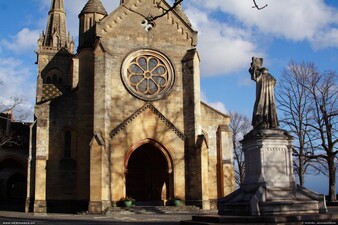
Winning Switzerland to Christ
Farel’s energetic efforts were central in opposing Catholicism and promoting the Protestant Reformation in Basel, Bern, Lausanne and Geneva. Everywhere he proclaimed the supremacy of the Scriptures and the need to return to a purified faith, which was based on the Bible alone. With great skill in debating and evangelistic zeal, Farel succeeded in winning most of French speaking Switzerland to the Protestant Faith. The Scourge of the Priests Farel’s powerful preaching was described as full of fire and fury. The pope was antichrist. The Mass idolatry. His sermons were cannon blasts. His oratory gripped whole cities. Farel was called “The scourge of the priests.” Fearless under Fire Several priests attempted to assassinate Farel. After one attempt on his life failed, Farel whirled around and declared to the priest who had fired the bullet: “I am not afraid of your shots!” 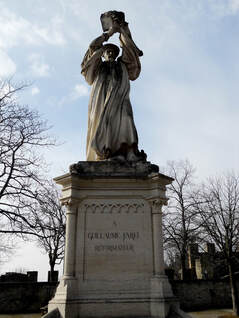
A Church Planter and Author
Many new churches were established and organised under his energetic leadership. Although more of an orator than a writer, and a man of action rather than a theologian, Farel did provide the newly created churches with discipleship books in French. In his “Summary” Farel showed how Christian doctrine should be practically applied to everyday life, and he drew up the first liturgy for French-speaking Reformed churches. The Waldensians Farel crossed the Alps to participate in a Synod of the Waldensians. He recruited these believers to the Reformation movement, and convinced them to have the Scriptures translated and printed. This was the first French translation of the Holy Scriptures and was published in 1535. Neuchatel After winning Neuchatel to the Reformation, he introduced the book publisher, Pierre de Vingle, to Neuchatel who, just between 1533 and 1535, published 20 Protestant books, which spread the Faith far and wide. 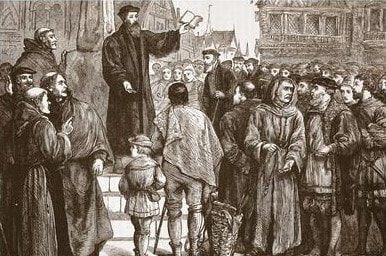
Practical Faith
Farel was a man of deep devotion, personal piety and a very practical faith. He taught that true Christianity functions through charity. Winning Towns through Debates Farel’s practice was to go into the market places of Catholic towns and preach the Gospel. When attempts were made to arrest him, he challenged the local priests, or bishop, to a public debate. Inevitably, Farel won these debates. He then would appeal directly to the masses to vote on whether they were in favour of converting to the Protestant Faith, or whether they wanted to remain with Roman superstitions. 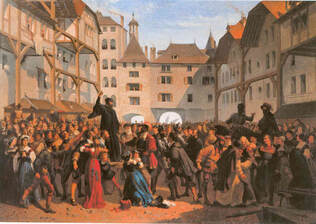
Confrontational
On such mission trips, Farel’s confrontational style and tactics provoked violent reactions. In one town, the bishop tried to have him drowned in the fountain! On occasion, Farel resorted to his fists to eject the papists and seize their pulpits. It is significant that in the Reformation Wall monument, in Geneva, Farel is the only one of the Reformers depicted with a Bible in his left hand (not his right) and his right hand in a fist. Farel was ridiculed, beaten, shot at and abused, but he never gave up. Farel was a fighter. Ready to Dispute In the summer of 1535, Farel seized the church of La Madeleine and the Cathedral of St. Peter (in Geneva). Farel declared: “I have been baptized in the Name of the Father, the Son and the Holy Ghost…I go about preaching Christ - why He died for our sins and rose again for our justification.ÂÂ Whoever believes in Him will be saved; unbelievers will be lost. I am bound to preach to all who will hear. I am ready to dispute with you…” Destroying Idols In response to his vehement sermon against idolatry, there was a wave of destroying superstitious religious images, statues and idols throughout Geneva. Altars were demolished, the mass was abolished, and images were removed from churches. 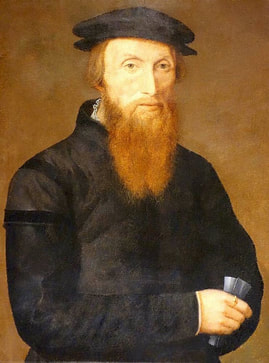
Geneva Chooses for Reformation
On 21 May 1536, a General Assembly of the citizens of Geneva voted in favour of the Reformation and made the Protestant Faith the official religion of the city. Revolt against Savoy With Geneva in revolt against the Duke of Savoy and its bishop, waves of political and religious turmoil swept the city and emotions were high. Surrounded by mountains in the control of Catholic France and the Duke of Savoy, the Reformation in Geneva was very vulnerable. Farel knew his limitations, and he prayed for a man who would be capable of discipling this distracted and debauched city. A Decisive Detour It was at this decisive point that 27-year-old, French Reformer, John Calvin was forced by a local war to detour through Geneva. He expected to be in the city for only one night. But Farel heard of this famous scholar and author of “The Institutes” and he rushed over to recruit him. A Contest of Wills But Calvin was not interested. The more Farel explained his plans and described the situation in Geneva, the less Calvin felt inclined to stay. He realized that to accept Farel’s challenge would involve him in controversies and conflict, and his timid nature shrank from such un-scholarly activities. Calvin’s mind was set on studying in Strassburg, but Farel insisted that he stay in Geneva. Others observing this escalating argument could not have appreciated what a dramatic impact the result of this contest of wills would have on world history. 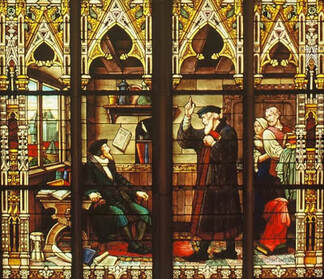
Confronting Calvin
When, at last, Calvin pleaded his inexperience, general unsuitability for the pastorate, and his need for further study, Farel rose from his chair and stretched himself out to his full height. As his long beard swept his chest, Farel directed his piercing eyes at the young man seated before him. He thundered: “May God curse your studies if now, in her time of need, you refuse to lend your aid to His Church!” Called to Geneva Calvin was visibly shaken, and, as he said later, he was struck with terror. In Farel’s voice of thunder, Calvin had heard the call of God. There and then he yielded and consented to stay in Geneva. Just as Barnabas was used to mobilise Saul for ministry, so Farel recruited Calvin. 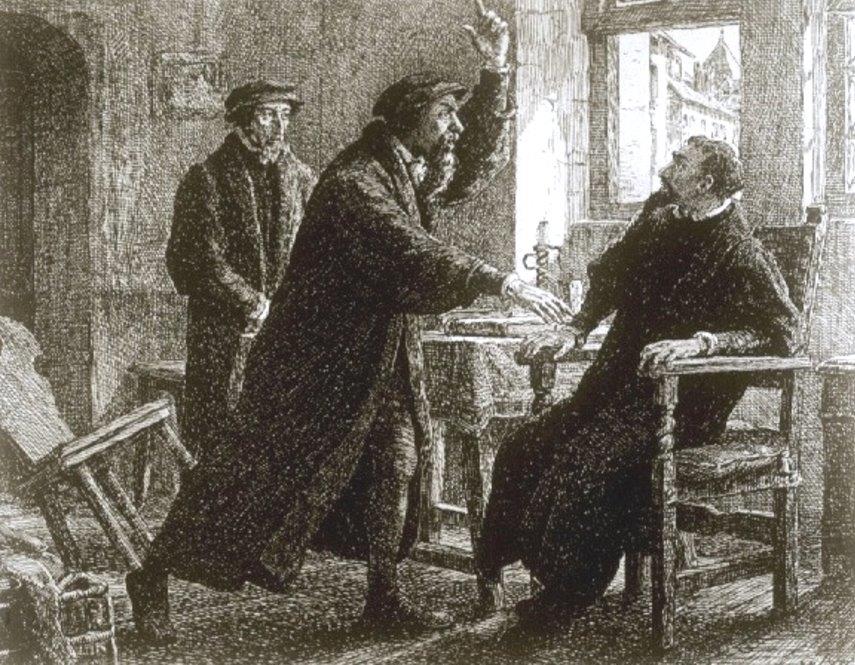
Calvin’s Closest Friend
Farel probably was Calvin’s closest friend through the years. They endured much together, including being expelled from Geneva in 1538. Again it was the persuasions of Farel that convinced Calvin to accept Geneva’s requests for him to return in 1541. Pioneer Pastor For the last 27 years of his life, Farel pastored the church in Neuchatel, one of the first towns that he had won to Christ. Farel’s dynamic faith, missionary vision and evangelistic campaigns had in large measure been used of God to win much of French speaking Switzerland to Christ. And it was he who ensured that Calvin became the pastor, educator and Reformer of Geneva. “Whoever confesses Me before men, him the Son of Man also will confess before the Angels of God.” Luke 12:8 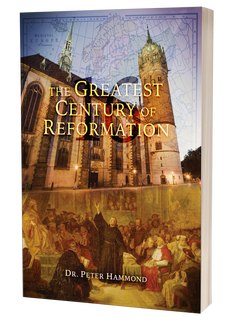
Dr. Peter Hammond
Frontline Fellowship [email protected] www.frontline.org.za This article is from a chapter in The Greatest Century of Reformation (288 pages, over 200 historic pictures and maps, 20 chapters and 16 appendices), available from Christian Liberty Books, PO Box 358, Howard Place 7450, Cape Town, South Africa, Tel: 021-689-7478, Fax: 086-551-7490, Email: [email protected] and Website: www.christianlibertybooks.co.za.
0 Comments
Leave a Reply. |
History ArticlesCategories
All
Archives
May 2023
|
- Home
-
History Articles
- History Articles
- All Categories
- Character Studies
- Greatest Century of Missions
- Greatest Century of Reformation
- Reformation In Bohemia
- Reformation In England
- Reformation In France
- Reformation In Geneva
- Reformation In Germany
- Reformation In Italy
- Reformation In Scotland
- Reformation in Switzerland
- Victorious Christians
- Contemporary Articles
- Resources
- Contact
- Donate
|
The Reformation Society
PO Box 74, Newlands, 7725, South Africa Tel : (021) 689-4480 Email: [email protected] Copyright © 2022 ReformationSA.org. All rights reserved |
- Home
-
History Articles
- History Articles
- All Categories
- Character Studies
- Greatest Century of Missions
- Greatest Century of Reformation
- Reformation In Bohemia
- Reformation In England
- Reformation In France
- Reformation In Geneva
- Reformation In Germany
- Reformation In Italy
- Reformation In Scotland
- Reformation in Switzerland
- Victorious Christians
- Contemporary Articles
- Resources
- Contact
- Donate
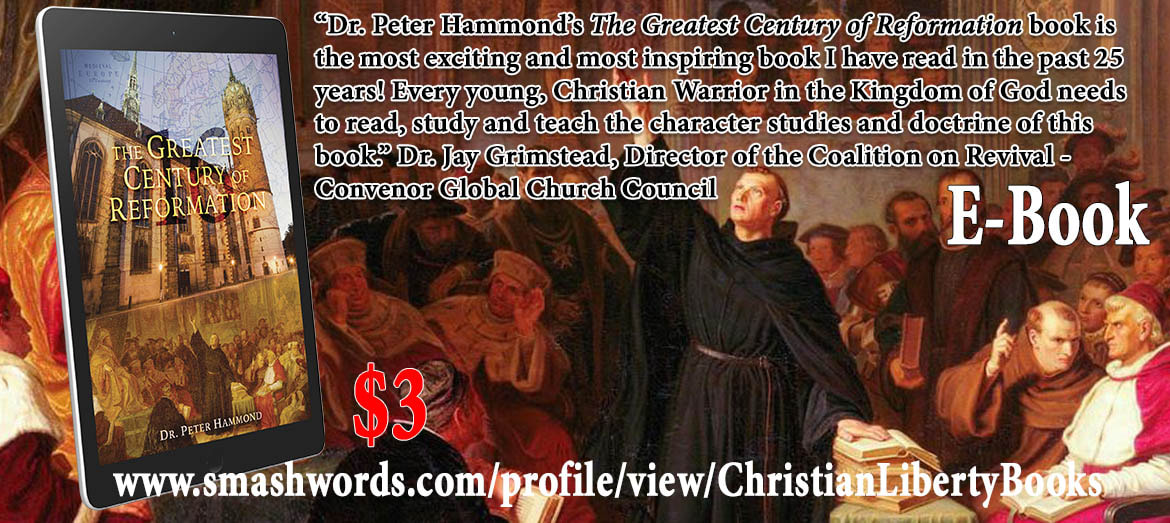
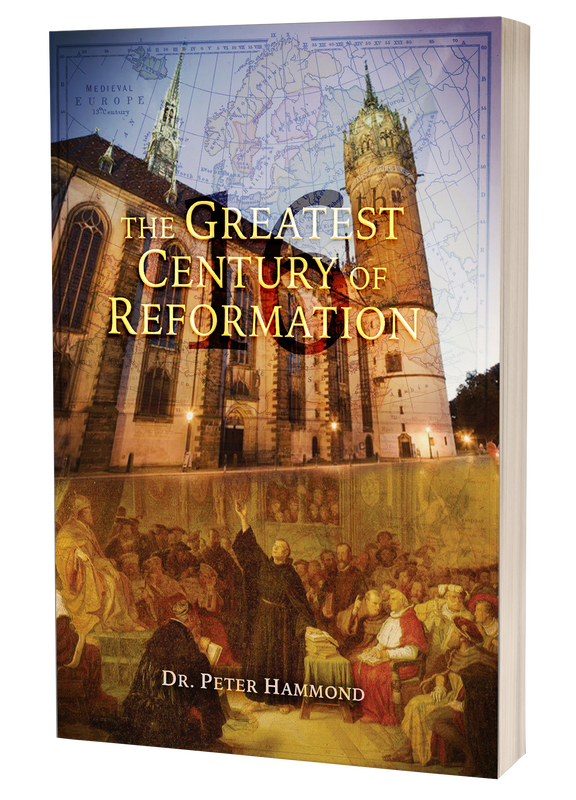
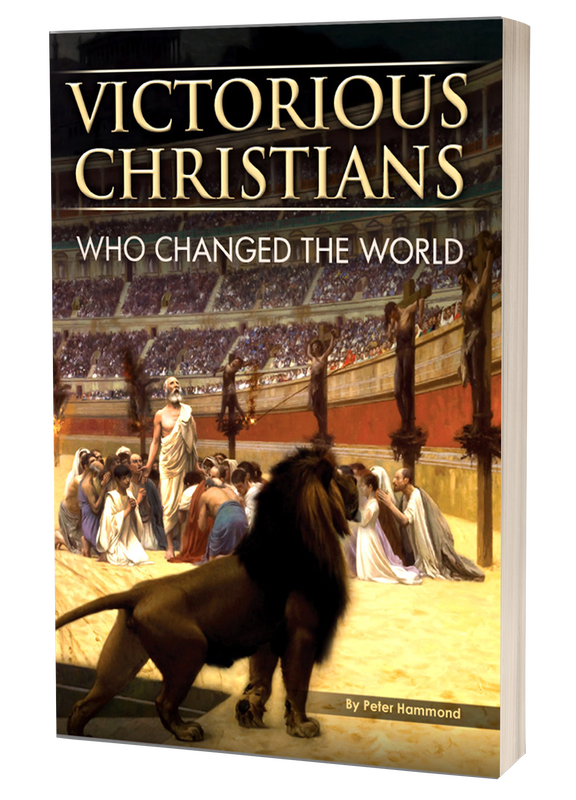
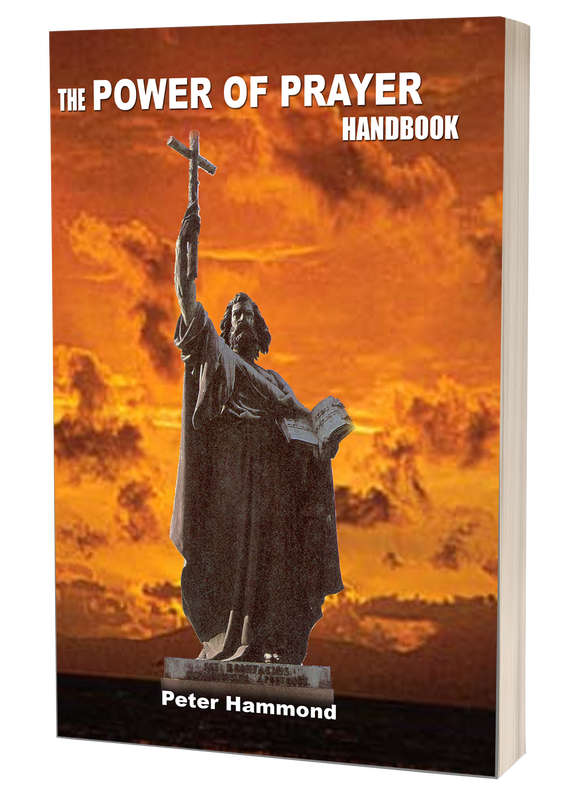
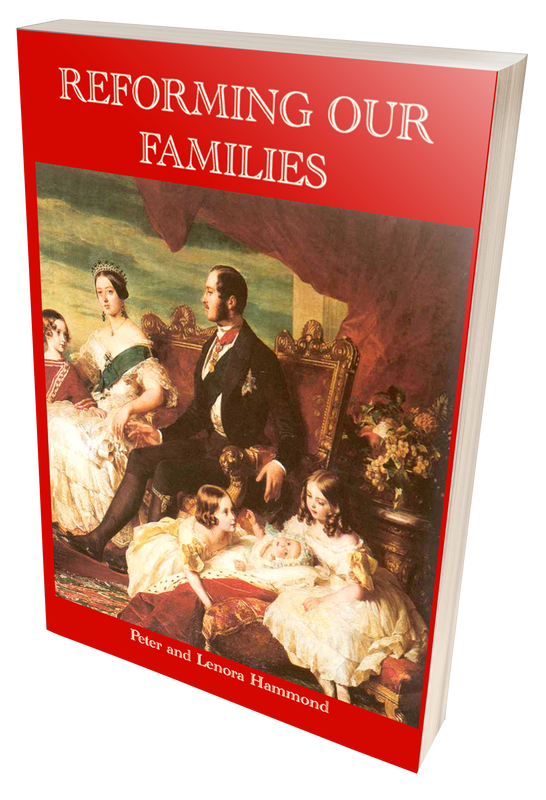
 RSS Feed
RSS Feed
